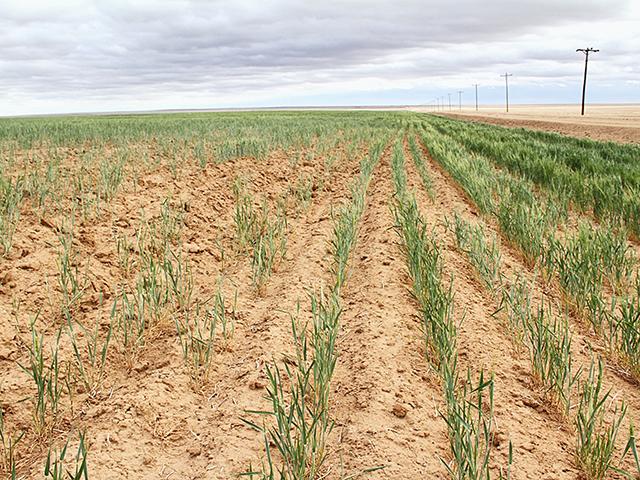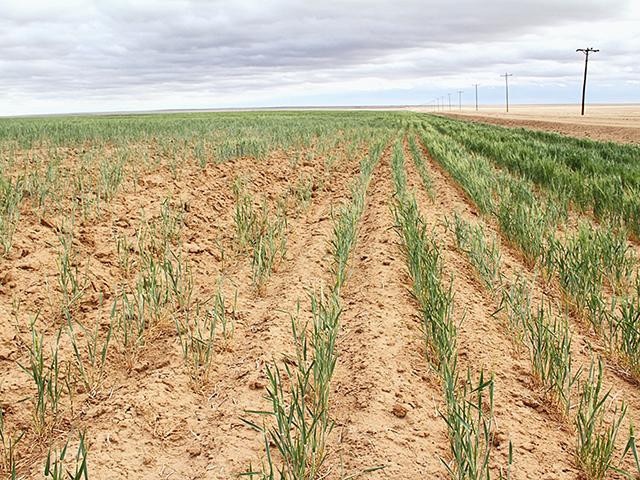Ag Policy Blog
Climate Scientists Warn of Increasing Food Security Risks in New UN Report
Scientists keep trying to warn everyone that our efforts to combat climate change aren't enough to meet emission targets.
The United Nations Intergovernmental Panel on Climate Change (IPCC) warned in a report released Monday, "There is a rapidly closing window of opportunity to secure a livable and sustainable future for all."
The report calls for swift actions to avoid irreversible damage, especially in more vulnerable parts of the world.
Food security is a major component of the new report. The report includes 33 references to food security or food production facing greater climate risks going forward. Beyond actual temperature changes and extreme weather, the scientists also note farmers globally will also come under increasing pressure for land as well.
"Climate-driven food insecurity and supply instability are projected to increase with warmer global temperatures while other factors will also play a role, including "competition for land between urban expansion and food production, pandemics and conflict."
The IPCC report cited that the commitments made by countries around the world to reduce global emissions "likely" will push temperatures higher by at least 1.5 Celsius (2.7 F) during this century "and make it harder to limit warming below 2 C."
The IPCC release Monday came from hundreds of scientists in their summary report released primarily for policymakers. The 37-page report points out roughly 3.3 billion to 3.6 billion people live in areas that are highly vulnerable to climate change.
The prose in these scientific climate reports can be excruciating to read, as the journalistic group "Covering Climate Now" pointed out Monday.
P[L1] D[0x0] M[300x250] OOP[F] ADUNIT[] T[]
IPCC quote: "Regions and people with considerable development constraints have a high vulnerability to climatic hazards. Increasing weather and climate extreme events have exposed millions of people to acute food insecurity and reduced water security with the largest adverse impacts observed in many locations and/or communities in Africa, Asia, Central and South America, LDCs, Small Islands and the Arctic, and globally for Indigenous Peoples, small-scale food producers and low-income households."
Covering Climate Now offered a blunt translation, "People are starving, now, because of climate change, especially in poor countries throughout the Global South."
The IPCC report comes out as U.S. policymakers are in the early throes of holding hearings and trying to draft a new farm bill. Much of the climate discussion, however, focuses on conservation practices and whether climate-smart farming practices should be incorporated into crop insurance. A wholly separate discussion is whether the billions of dollars in annual ad-hoc disaster assistance should spark lawmakers to look at a new disaster program. And then there's talk about whether agricultural research programs should receive more dollars in the farm bill as well.
The U.N. report cites that a warmer climate will put more pressure on both food and water security globally going forward.
"Although overall agricultural productivity has increased, climate change has slowed this growth over the past 50 years globally." The scientists put their confidence in that statement at "medium confidence," meaning there are about a 5 out of 10 chances in the accuracy of that position.
Climate change also has caused widespread economic impacts that affects regions of the world unevenly. Certain sectors of the economy -- agriculture, forestry, fishery, energy, and tourism – are all impacted. And that again leads to damaged property, loss of life, lost income, poorer health and food insecurity.
The report touches on some of the adaptation and mitigation strategies that are being used. When it comes to agriculture, the report mentions "effective adaptation" strategies that include crop improvements, on-farm water management and storage, soil-moisture conservation, irrigation, agroforestry and diversification among the approaches.
Among other changes, "urban greening, restoration of wetlands and upstream forest ecosystems have been effective in reducing flood risks and urban heat."
The IPCC report backs up some annual research conducted now at Virginia Tech University, which produces the Global Agricultural Productivity (GAP) report. The most recent GAP report, released last fall, shows agricultural production needs to increase an average of 1.73% per year to sustainably feed more than 9 billion people by 2050. The rate of productivity, however, has slowed. From 2011-2020, global agricultural productivity grew at an average of just 1.12% per year, a significant drop from the average growth rate of 1.99% from 2001-2010.
Environmental Defense Fund also released a report last fall focusing on corn, soybean and wheat yields in Midwest states. That report cited that growing-degree days will increase between 2030 and 2050 but also so will the number of days with extreme heat.
As DTN reported last fall, the EDF study pointed to the risks of lower corn yields in counties across Iowa, as well as declines of soybean yields in Minnesota and lost wheat production in in parts of Kansas as well.
Due to both climate and non-climate drivers, roughly half of the world's population currently experiences sever water scarcity for at least part of the year.
IPCC "Synthesis Report" https://www.ipcc.ch/…
Also see, "Climate Change Will Slow Midwest Yield Increases for Corn, Soybeans, Wheat,"
Chris Clayton can be reached at Chris.Clayton@dtn.com
Follow him on Twitter @ChrisClaytonDTN
(c) Copyright 2023 DTN, LLC. All rights reserved.





Comments
To comment, please Log In or Join our Community .